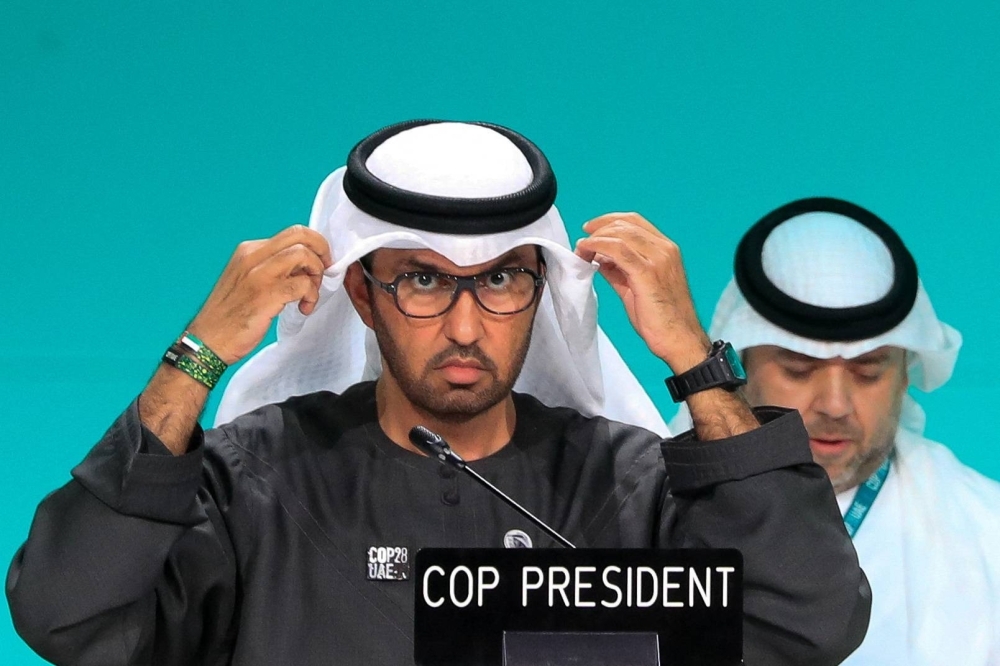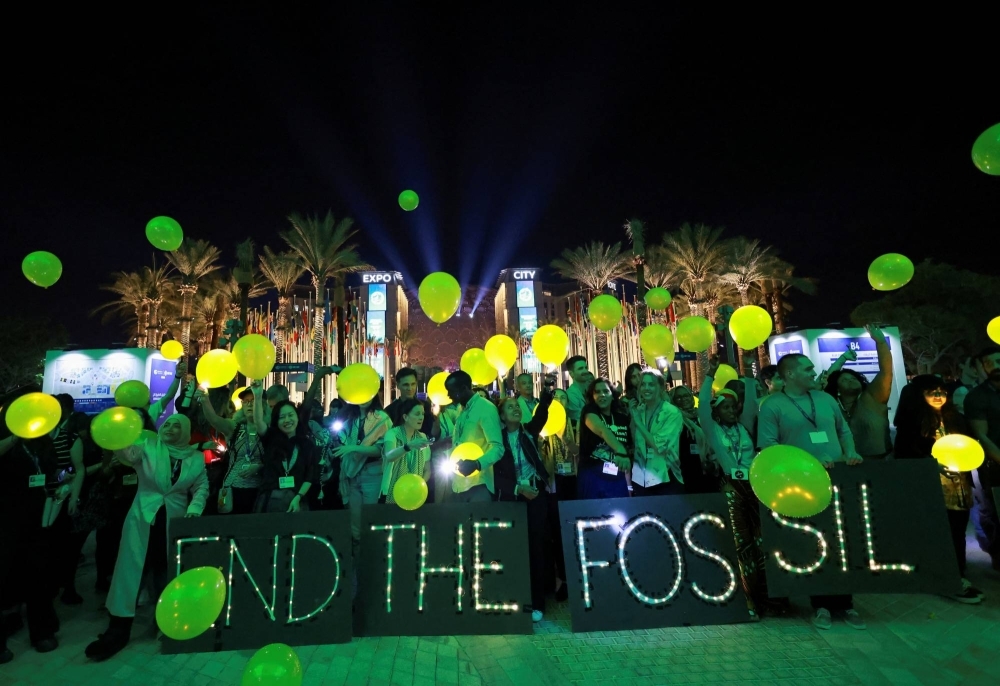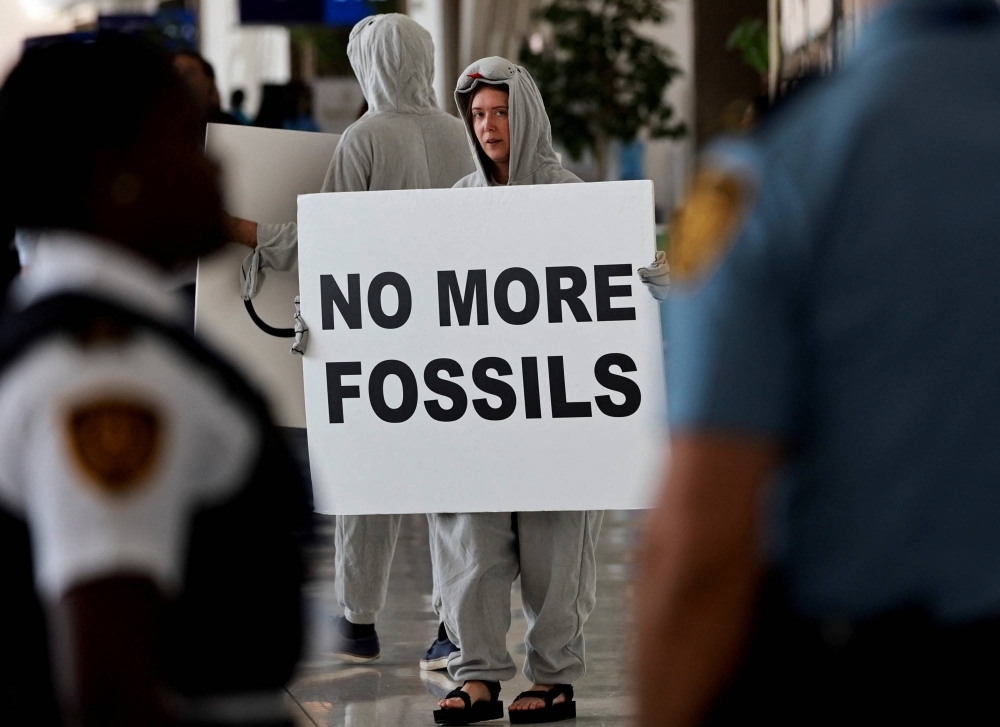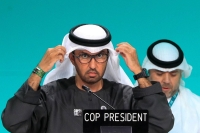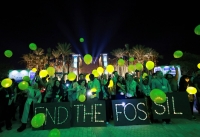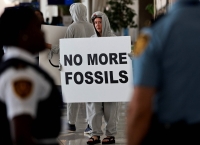COP28 Director-General Majid Al Suwaidi said on Tuesday the summit's presidency wanted to include a "historic" mention on the future of fossil fuels in the next draft text for a possible deal, but that it was up to the almost 200 nations at the talks.
The climate talks ran into overtime after an initial draft agreement for countering planet-warning pollution fell short of expectations for many.
"At this COP we are trying to do something that has never been done before, something historic. ... Part of this is to include fossil fuels in the text. If we can, that would be historic," he told reporters.
The grouping was working to put these views "into the text in a way that everybody can be happy with," Al Suwaidi added. "The point is to get a consensus."
A 21-page document released Monday pitched a cut in consumption and production of fossil fuels as host United Arab Emirates tried to craft a compromise. A new draft was expected later Tuesday as the U.S. and European Union were among those that opposed the previous version, saying it didn’t go far enough with a phase out of polluting energy, and instead allows nations loopholes and opt-outs.
A broad coalition wants stronger language calling for the phase out of fossil fuels, but that’s adamantly opposed by Saudi Arabia and other OPEC+ nations.
The first text proposed a "just” and "orderly” reduction of fossil fuel use — adjectives designed to appease more cautious countries. But it presented those reductions, along with boosting efficiency and renewable power, as merely options.
In a meeting of lead negotiators late Monday, U.S. climate envoy John Kerry said the proposed text doesn’t meet the moment. A State Department spokesperson said the fossil fuel language needed to be "substantially strengthened.” EU climate commissioner Wopke Hoekstra said that days of talks could remain in order to make the phase-out language stronger to keep alive the goal of keeping warming to 1.5 degrees Celsius.
"We have made progress, but we still have a lot to do,” Sultan Al Jaber, the UAE oil executive running COP28, told a plenary session of the summit after the first draft was published Monday. "You know what remains to be agreed, and you know I want you to develop the highest ambition on all items, including on fossil fuel language.”
The new draft deal was set to arrive hours after the summit’s scheduled 11 a.m. close. Negotiators were to scrutinize every word — likely through the night — in an attempt to reach a consensus.
For some, the inclusion of fossil fuels in the draft text and getting countries like Saudi Arabia, whose economies depend heavily on oil, engaged in discussions about it already goes a long way.
"This is the first COP where the word ‘fossil fuels’ are actually included in the draft decision,” said Mohamed Adow, the director of Power Shift Africa. "This is the beginning of the end of the fossil fuel era.”
But that praise was mixed with pushback from others for stronger action, showing an agreement was some way off.
"The Republic of the Marshall Islands did not come here to sign our death warrant,” said John Silk, head of delegation for the Marshall Islands, a nation at risk from rising sea levels. "What we have seen today is unacceptable. We will not go silently to our watery graves.”
There was no initial reaction from Saudi Arabia and other members of the Organization of Petroleum Exporting Countries. The head of OPEC had last week asked its members to reject any agreement that targets fossil fuels.
The text also presents some actions — from tripling renewables to reducing the consumption and production of fossil fuels — as options, rather than prescribed steps.
Those items in the draft text are preceded by the phrase: "take actions that could include.” That qualifier "makes all the listed actions optional for nations,” said Rachel Cleetus, policy director at the Union of Concerned Scientists. The text is "extremely disappointing, concerning, and nowhere close to the level of ambition people around the world deserve,” she said.
Other key elements of the draft included the first agreement to go beyond carbon dioxide by targeting methane and other potent greenhouse gases with substantial reductions by 2030. That follows a voluntary pledge for a 30% global reduction in methane first introduced by the U.S. and EU two years ago. The move is significant because methane, fluorinated gases and nitrous oxide are far more powerful at warming the earth’s temperature.
A framework on how to adapt to climate change — known as the global goal on adaptation — was given stronger references to finance, addressing the need to close the gap in funding.



